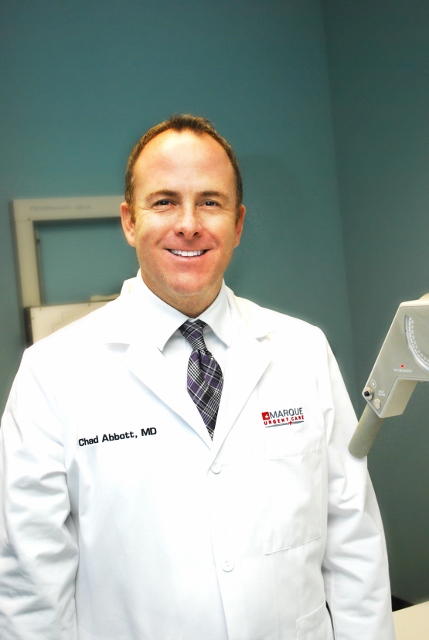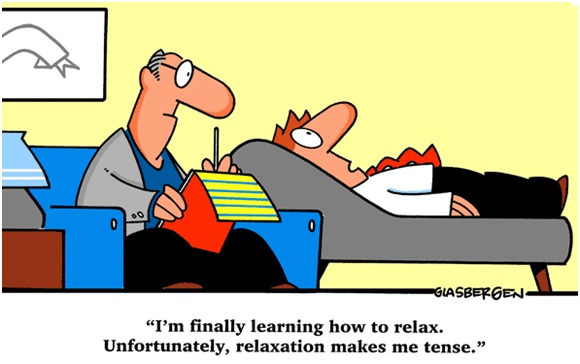
Remember stress is real. It is not an imaginary concept or feeling. Stress directly impacts your overall health. The phrase “Stress Kills” is true!
Below is a summary of what stress actually is and how to manage the stress in your life:
1. What is stress? In simple terms, stress is an external force that acts on our bodies in the same fashion that forces act on inanimate objects such as metal. For instance, a ship sitting in the ocean will have a chemical reaction with the salt water and metal forming rust. This is a process that takes time, but ultimately will destroy the boat if there aren’t measures to combat or reverse this process. Simply stated, anything that affects your body in a negative or a positive way is considered stress.
The human body and mind are remarkable at maintaining homeostasis despite the stresses of living. The way our bodies combat stress is through a very complex set of regulatory processes collectively referred to as homeostasis. Homeostasis refers to our body’s normal set points for things like vital signs including blood pressure, pulse, respiratory rate, temperature, and pain. Remember that pain is the sixth vital sign which is linked not only to injury and illness, but also one’s psychological state. Other homeostatic mechanisms include: salt/water balance and the buildup and break down of cells and tissues in the body.
2. What are the differences between physiologic and emotional/psychological stress? Psychological/emotional stress refers to the perception of real or imagined threats to our bodies, minds and souls. The big issue is the realization that you may not have the resources necessary to overcome the perceived threat(s). Examples include: social status, respect, acceptance among your peer group, threat to your self-worth, or any other threat that you feel you have no control over. That is important point because as human we want to feel that we have control of our lives. When we lose power over our lives, stress develops.
3. What are the differences between good stress and bad stress? Good stress refers to a controlled situation. It is the individual’s decision to take on a specific set of circumstances. Examples may include: taking on a new project at home or school, volunteering, starting an exercise program. This stress is perceived as manageable by the individual, but in actuality it can also lead to feeling stressed and overwhelmed which leads to the same physiologic reactions as bad stress. Bad stress refers to an uncontrollable situation. The individual has no power over the circumstances. Examples include: deadlines at work, paying taxes, working, dealing with the loss of a loved one, etc.
4. What are the physiological, psychological, and emotional impacts of stress on human beings? Fight or flight response vs. rest and digest: The sympathetic nervous system is responsible for a “fight or flight” response. The parasympatheic nervous system is responsible for processes such as digestion, sleep, etc. Both systems are required for survival. The problems associated with living in a constant state of “fight or flight” are the following: high blood pressure, clogging of the arteries= heart disease, heart attack, stroke, neurological changes in the brain= depression, anxiety, addiction, insomnia, obesity, etc.
5. What are signs and symptoms of stress? Here is any easy table that lists the signs and symptoms of stress. If you are experiencing any of the following symptoms more days than not over a two to four week period seek medical attention. A physician can help you articulate your symptoms and discuss stress management techniques that are proven to work for most people.
6. How can we manage stress?
Stress management doesn’t have to be complex, time consuming, or expensive. In fact, if you make stress management stressful, it defeats the purpose. Simple stress management can be as easy as setting aside 10 to 15 minutes each day for “Me Time”. This means you don’t do any work, chores, or respond to questions from others including text messages, telephone calls and emails. You simply allow yourself to unplug mentally and do nothing. My mother uses the phrase, “We aren’t human doings, we are human beings”. I think that is a very powerful statement and one we should all strive to follow.
7. What are some clinically proven stress management techniques?
Get active. Try to perform some sort of physical activity every day. Aerobic exercise works best, but weightlifting, bicycling, and swimming are excellent sources of exercise. You don’t have to belong to a gym to get exercise. Aim for 15-30 minutes of some sort of exercise every day.
Meditate. This has proven health benefits. In fact some people become so good at meditation that they can focus on their heart rate and breathing to actually lower both of them. This can lower their blood pressure. There are many ways to meditate including focusing on a specific word that you like, prayer, and guided imagery. This where you pick your favorite place and focus on it in your mind until you can see it clearly. At first you may have a difficult time doing this, but eventually you will get the hang of it. The best part of meditation is you can do it whenever and wherever you want!
Laugh. It is proven that people who laugh (more including laughing at themselves) feel less stressed, achieve more in their personal and professional lives, and some people even say laughter is the key to their longevity.
Connect. Human beings are social animals. Isolation can lead to depression. This has been shown in prisoners and is exactly the same for everyone regardless of one’s situation. The old adage “A problem shared is a problem solved” works. If you feel stressed, find someone you trust to talk the problem out. I guarantee you will feel better when you’re done even if the problem isn’t solved.
Assert yourself. In today’s society there seems to be a pervasive thought that we must do everything asked of us. This is a fallacy. Always saying yes is a huge source of stress. Practice saying no from time to time and you will reduce your stress by a considerable amount. Remember if the person requesting something of you that you can’t do, it is okay to say no. This will reduce your stress and resentment.
Do yoga. Yoga is a phenomenal stress management technique because it incorporates not only physical exercise, but also control over your breathing and meditation. You don’t have to go to a yoga class. You can simply download a yoga video or purchase one at a local video store.
Sleep. We all need at least seven hours or sleep per night. Eight hours is actually better. Thinking that four hours is enough is incorrect. Sleep is the way our body and mind reset and recharge. Think of it as a computer rebooting. If you don’t reset and recharge, you will not have the energy to take on the next day’s activities. A sad statistic in our society is how many people take drugs like Ambien and anti-anxiety medications like Xanax and Valium. It is much better to get natural sleep which requires some behavior modifications including: setting a firm bedtime each night, not watching television or being on your computer in order to fall asleep, keep your room for sleeping only, avoid caffeine or other stimulant medications, foods, and setting a comfortable temperature and keeping the bedroom dark. If you try the aforementioned, you will train your body to sleep on its own. Taking medications all the time to help with sleep leads to dependency. This means your body has forgotten how to sleep on its own.
Journal. Writing down your thoughts and feelings is a good way to get them out and look at them from the outside in. Doing this is a cleansing process and allows you to move on. This doesn’t have to be a formal process. In fact it is better to just sit and free flow your thoughts and feelings as opposed to forcing yourself to be structured and write the perfect sentence.
Get musical. Listening or playing music are both excellent stress relievers. The brain is activated in a way that watching television can’t match. Music has been shown to decrease muscle tension and decrease stress hormones.
8. When should you seek medical attention for stress and stress-related illnesses? If you are at your “breaking point” and becoming depressed and anxious to the extent where your work life or home life are being affected, it is time to seek professional health. If you can notice yourself becoming stressed out, it is better to seek help earlier rather than later. Seeking professional help is not a sign of weakness or that you are a failure. On the contrary, it shows that you are self-aware and willing to be proactive. This will build confidence in yourself because you are able to do something positive and help yourself.
The information provided is for general interest only and should not be misconstrued as a diagnosis, prognosis or treatment recommendation. This information does not in any way constitute the practice of medicine, or any other health care profession. Readers are directed to consult their health care provider regarding their specific health situation. Marque Medical is not liable for any action taken by a reader based upon this information.



